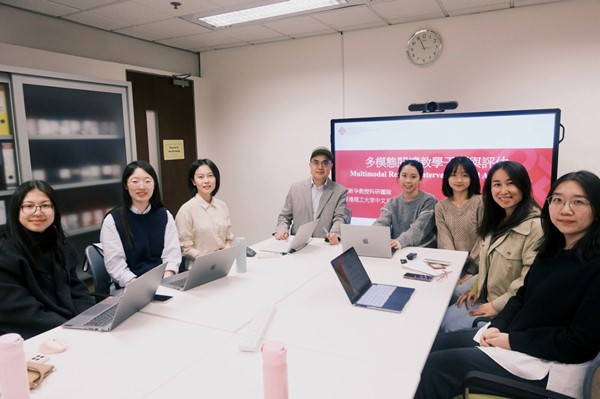Digital tech makes navigating diverse materials vital


A Hong Kong-based professor has noted with the rise of digital technologies that has profoundly impacted education systems worldwide, fostering people's ability to navigate and comprehend diverse materials is more critical than ever.
Zhu Xinhua, a professor at the Hong Kong Polytechnic University (PolyU), said in today's digital world, using online multimodal reading activities to comprehend written text, interpret pictures and diagrams, listen to audio and watch videos online is an essential skill for success.
In 2019, the country released its Education Modernization 2035 plan, emphasizing the necessity for rapid reform to meet the challenges of the information era, while highlighting the need to integrate intelligent teaching platforms and balance large-scale education with personalized learning. Aligned with the chances, Hong Kong introduced the "Information Literacy for Hong Kong Students" Learning Framework (2024), which addresses the challenge of enhancing digital competence.
To address these literacy demands, Zhu's team at the Faculty of Humanities at PolyU developed a teaching program and an assessment task set of multimodal reading, with over 600 primary school students taking part in their innovative reading activities recently.
Despite the global trend of education reform in the information era, students' experiences with online multimodal reading tasks vary, Zhu said, noting that multimodal reading can promote personalized learning by providing multiple forms of information presentation to meet the diverse needs of students with varying learning styles. Its straightforward and highly interactive nature can enhance students' comprehension of the text.
With over 20 years of experience in literacy research and as an expert in literacy studies, Zhu has witnessed the evolution of reading practices.
Currently, Zhu's research team is working on two areas: one explores how integrating multimodal reading into teaching impacts students' motivation, while the other explores the development of multimodal reading assessments.
It has been learned that the Hong Kong Examinations and Assessment Authority (HKEAA) announced that the upcoming Progress in International Reading Literacy Study (PIRLS) 2026 reading assessment will be fully digital, featuring visually rich and interactive materials.
To address the limitations of traditional assessment criteria for multimodal reading, Zhu's team also focused on another area of multimodal reading by developing a series of tasks to assess students' performance in multimodal tasks. These tests, involving over 500 fourth-grade Chinese students, evaluate reading competencies.
The first round of testing was completed this December, with preliminary results showing that only 35 percent of the students answered multimodal questions correctly, while 41 percent performed well in retrieving information and making inferences based on online multimodal texts.
These findings suggest there is potential for enhancing students' multimodal reading skills.
Please contact the writer at [email protected]



































